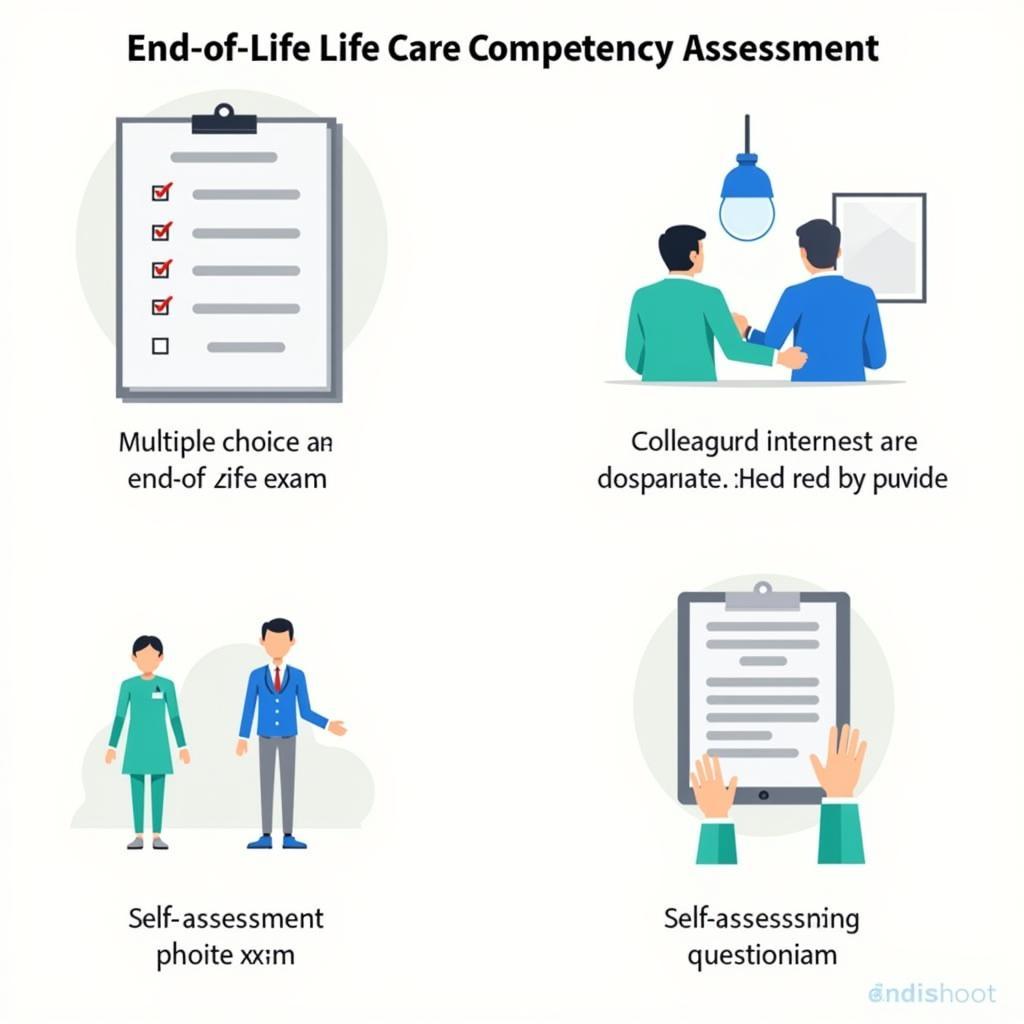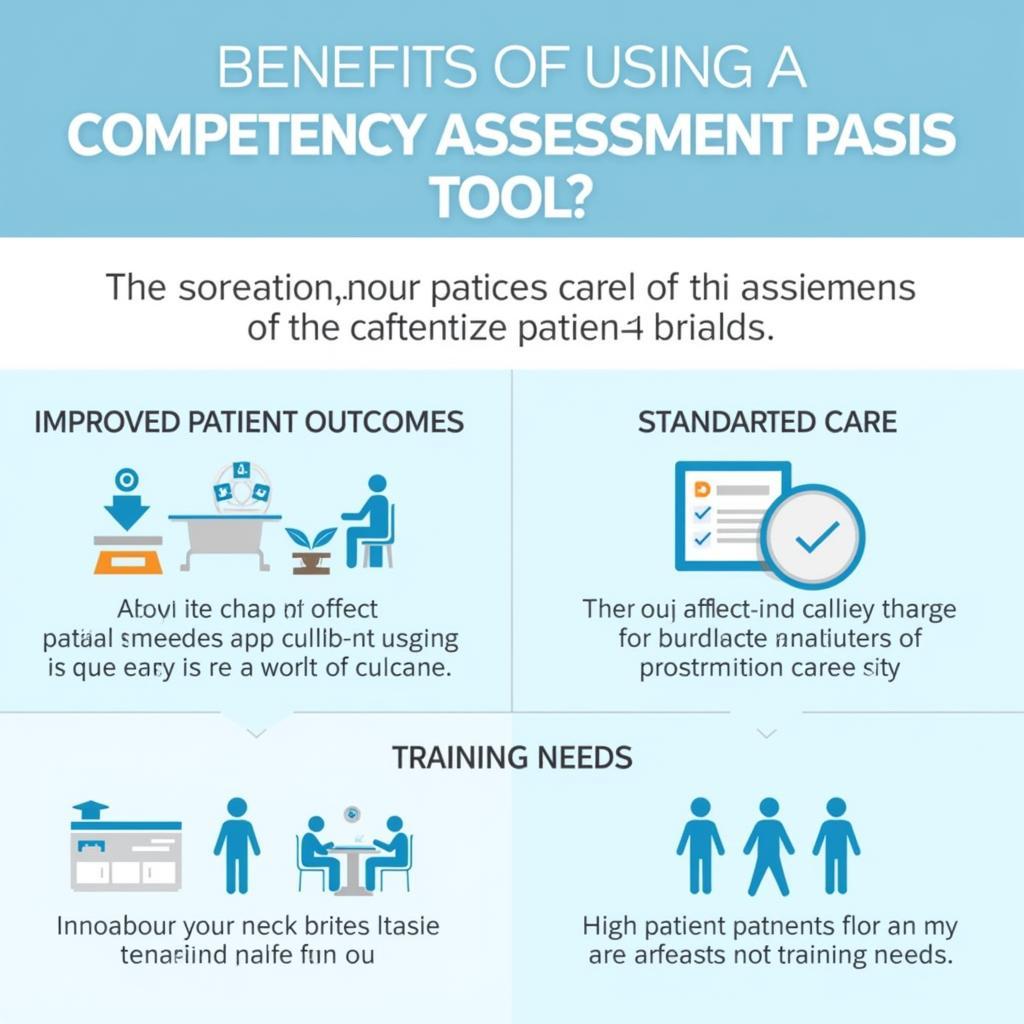Palliative And End Of Life Care Competency Assessment Tools are crucial for ensuring healthcare professionals possess the necessary skills and knowledge to provide compassionate and effective care. These tools evaluate a range of competencies, from communication and symptom management to ethical considerations and cultural sensitivity. Understanding the importance of these assessments is vital for both patients and healthcare providers.
 Palliative Care Competency Assessment Tool
Palliative Care Competency Assessment Tool
Effective palliative and end of life care requires a multi-faceted approach. This includes not only managing physical symptoms but also addressing the emotional, spiritual, and psychosocial needs of patients and their families. Competency assessment tools help identify areas where healthcare professionals may require further training or development to provide holistic care. These tools are designed to gauge the proficiency of individuals in various aspects of palliative care, ensuring a standardized level of quality and expertise.
What is a Palliative and End of Life Care Competency Assessment Tool?
A palliative and end of life care competency assessment tool is a structured instrument used to evaluate the knowledge, skills, and attitudes of healthcare professionals in providing quality end-of-life care. These tools can take various forms, including self-assessments, observed clinical practice, and written examinations. The key is to provide a comprehensive evaluation that reflects the complexities of end-of-life care.
 Different methods of end-of-life care competency assessment
Different methods of end-of-life care competency assessment
Key Competencies Assessed in Palliative and End of Life Care
Several key competencies are typically evaluated in these assessment tools. These include:
- Communication: Effective communication is paramount in end-of-life care, encompassing clear and compassionate discussions with patients, families, and the interdisciplinary team.
- Symptom Management: Assessing and managing pain, dyspnea, and other distressing symptoms is a core competency.
- Ethical Considerations: Understanding and applying ethical principles related to end-of-life decision-making, including advance care planning.
- Cultural Sensitivity: Providing care that respects the cultural and spiritual beliefs of patients and their families.
- Interdisciplinary Collaboration: Working effectively as part of an interdisciplinary team to provide comprehensive care.
Importance of Using a Competency Assessment Tool
Utilizing a competency assessment tool offers several benefits:
- Standardized Care: Ensures a consistent level of quality in palliative and end-of-life care.
- Identify Training Needs: Highlights areas where healthcare professionals may benefit from additional training or support.
- Improve Patient Outcomes: Leads to better symptom management, improved communication, and enhanced patient satisfaction.
- Professional Development: Provides opportunities for healthcare professionals to reflect on their practice and identify areas for growth.
 Benefits of using a Palliative and End of Life Care Competency Assessment Tool
Benefits of using a Palliative and End of Life Care Competency Assessment Tool
Utilizing the Palliative and End-of-Life Care Competency Assessment Tool PELCCT
The palliative and end-of-life care competency assessment tool pelcct is one example of a useful resource. It’s crucial to choose a tool that aligns with the specific needs of the healthcare setting and the population served. Consider the palliative care and end of life care competency assessment tool for a comprehensive evaluation. It’s important also to consider advance care planning tool for home health in order to provide the best possible care at home.
“Regularly assessing and enhancing competencies in palliative and end-of-life care is essential for delivering patient-centered, compassionate care,” says Dr. Emily Carter, a leading expert in palliative medicine. Another expert, Dr. Michael Davis, adds, “These tools empower healthcare professionals to provide the best possible support to patients and their families during a challenging time.”
In conclusion, palliative and end of life care competency assessment tools play a vital role in ensuring high-quality care. By evaluating key competencies and identifying areas for improvement, these tools help healthcare professionals provide compassionate and effective support to patients and their families facing end-of-life decisions.
FAQ
- What are the core components of a palliative care competency assessment tool?
- How can these tools improve patient outcomes?
- What are the different types of competency assessment tools available?
- How can healthcare organizations implement these tools effectively?
- What are the ethical considerations in end-of-life care competency assessment?
- What resources are available to support the development of palliative care competencies?
- How can individuals use self-assessment tools to enhance their skills?
Other resources
- palliative care and end of life care competency assessment tool
- advance care planning tool for home health
- palliative and end-of-life care competency assessment tool pelcct
For further assistance, please contact us via WhatsApp: +1(641)206-8880, Email: [email protected] or visit our office at 910 Cedar Lane, Chicago, IL 60605, USA. Our customer service team is available 24/7.

Leave a Reply